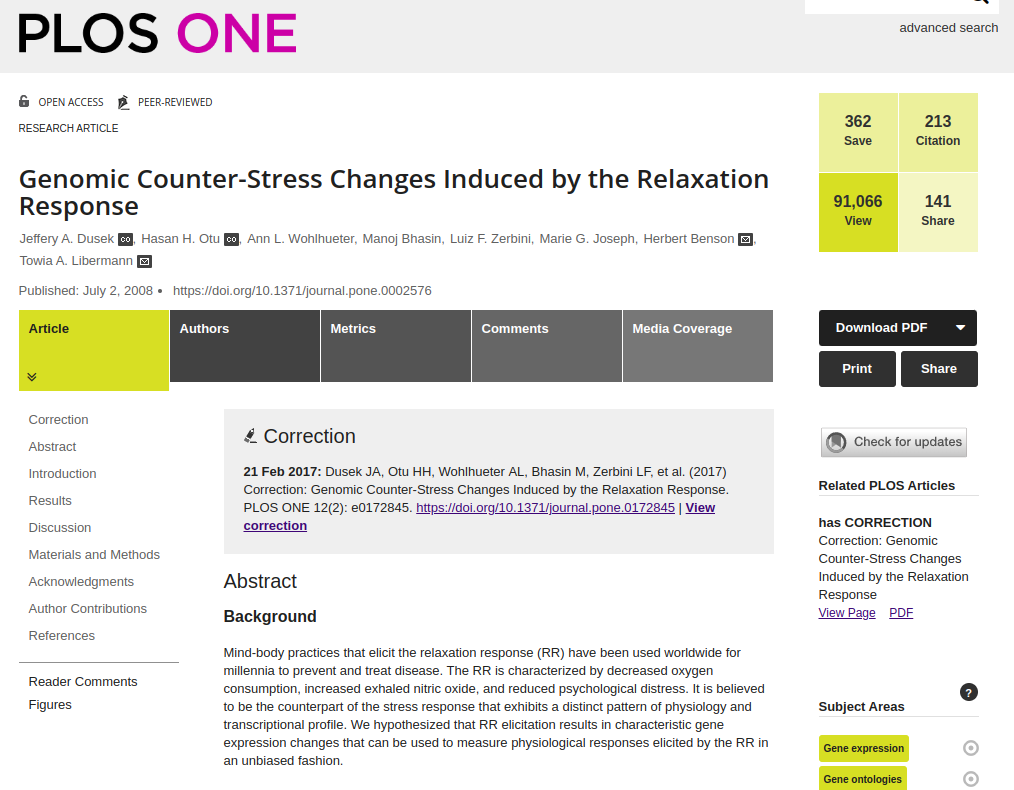Publication
PLOS ONE
Abstract
Mind-body practices that elicit the relaxation response (RR) have been used worldwide for millennia to prevent and treat disease. The RR is characterized by decreased oxygen consumption, increased exhaled nitric oxide, and reduced psychological distress. It is believed to be the counterpart of the stress response that exhibits a distinct pattern of physiology and transcriptional profile. We hypothesized that RR elicitation results in characteristic gene expression changes that can be used to measure physiological responses elicited by the RR in an unbiased fashion.
Web and Email Links
Related Listings
Journal
Behavioral Medicine
This article describes the validation of an Inventory of Positive Psychological Attitudes that has potential relevance to health outcomes and its preliminary testing with chronic pain patients. The inventory taps two attitudinal domains: (1) life purpose and satisfaction and (2) self-confidence during potentially stressful situations. It also provides a total score. The inventory scales, developed using factor analysis, were found to have a strong degree of internal reliability and co […]
Journal
Scientific American
A very readable introduction to the scientific findings in neurology about primarily Buddhist forms of meditation.
Journal
PLOS ONE
The relaxation response (RR) is the counterpart of the stress response. Millennia-old practices evoking the RR include meditation, yoga and repetitive prayer. Although RR elicitation is an effective therapeutic intervention that counteracts the adverse clinical effects of stress in disorders including hypertension, anxiety, insomnia and aging, the underlying molecular mechanisms that explain these clinical benefits remain undetermined. To assess rapid time-dependent (temporal) genomic […]

